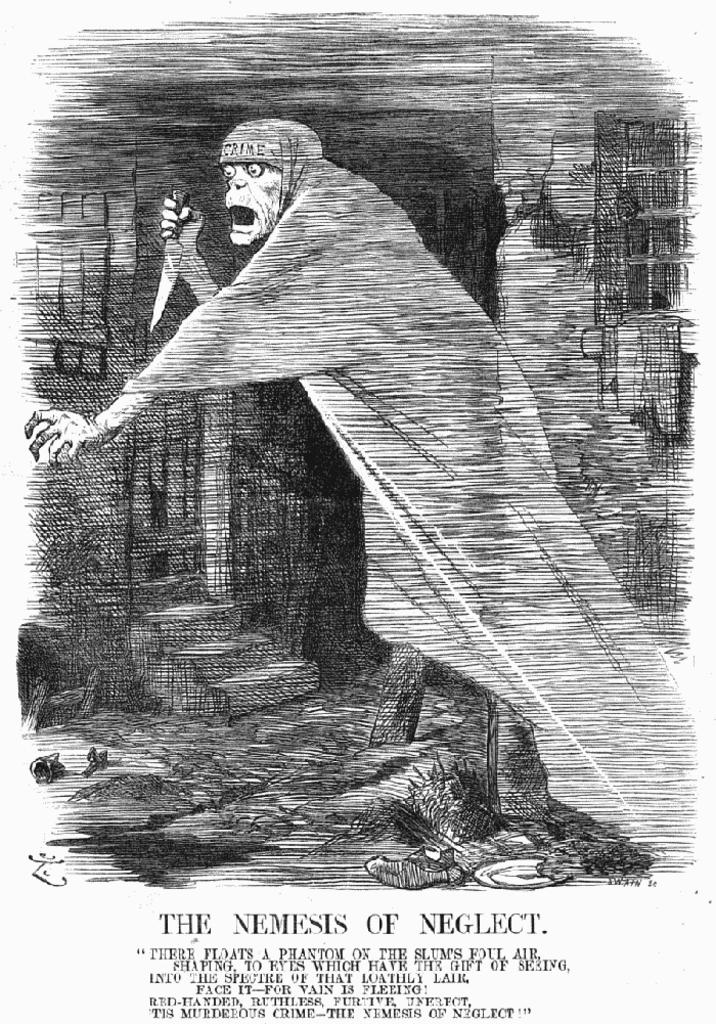DEUTSCHE BANK NATL. TRUST CO. v. ABER, 2022 NY Slip Op 51036 - NY: Supreme Court, Rockland Co. 2022:
"Turning to the merits of the RPAPL 1304 defense itself, the Court
need not belabor the issues. Strict compliance with the requirements of
RPAPL 1304 is a condition precedent to the commencement of a foreclosure
action (Kessler, 202 AD3d at 14; see CV XVII, LLC v Trippiedi, 187 AD3d 847, 850 [2d Dept 2020]; US Bank, N.A. v Haliotis, 185 AD3d 756, 758
[2d Dept 2020]). Plaintiff's RPAPL 1304 notice included extensive
language that RPAPL 1304(1) does not specify for inclusion in a
pre-commencement notice. Plaintiff does not dispute that the envelope
conveying plaintiff's RPAPL 1304 notice transmitted this additional
language. RPAPL 1304(2) is clear that the pre-commencement notice
"required by this section shall be sent by the lender, assignee or
mortgage loan servicer in a separate envelope from any other mailing or
notice." Additional language not "required by this section" violates the
separate-envelope requirement as Kessler and its progeny have construed it over a dozen times in recent months (see e.g. JPMorgan Chase Bank, N.A. v Dedvukaj, ___ AD3d ___, 2022 NY Slip Op 04541 [2d Dept, Jul 13, 2022]; U.S. Bank, N.A. v Lanzetta, ___ AD3d ___, 2022 NY Slip Op 04322 [2d Dept, Jul 6, 2022]; Wells Fargo Bank, N.A. v Bedell, 205 AD3d 1064 [2d Dept, May 25, 2022]; HSBC Bank USA, N.A. v Hibbert, 205 AD3d 783, 784 [2d Dept, May 11, 2022]; US Bank, N.A. v Drakakis, 205 AD3d 756, 757 [2d Dept, May 4, 2022]; Bank of NY Mellon v Govan, 204 AD3d 878 [2d Dept, Apr. 20, 2022]; HSBC Bank USA, N.A. v Jahaly, 204 AD3d 648 [2d Dept, Apr. 6, 2022]; US Bank, N.A. v Hinds, 203 AD3d 1210 [2d Dept, Mar. 30, 2022]; Deutsche Bank Natl. Trust Co. v Bancic, 203 AD3d 1130 [2d Dept, Mar. 30, 2022]; Deutsche Bank Natl. Trust Co. v Salva, 203 AD3d 700 [2d Dept, Mar. 2, 2022]; US Bank, N.A. v Kaplan, 202 AD3d 1144 [2d Dept, Feb. 23, 2022]; Sirianni, 202 AD3d at 702; DeFeo, 200 AD3d at 107; Dente,
200 AD3d at 1025). As such, defendant carries his prima facie burden to
demonstrate entitlement to judgment sustaining his RPAPL 1304
affirmative defense and, on that basis, obtain summary judgment
dismissing this action.
In opposition, plaintiff argues that an additional notice conveying
federally required materials inside an RPAPL 1304 envelope cannot
violate Kessler and its progeny under two recent cases sounding in federal preemption (see CIT Bank, N.A. v Neris, ___ F Supp 3d ___, 2022 WL 1799497 [SD NY, Jun 2, 2022]); Bank of NY Mellon v Luria, ___ Misc 3d ___, 2022 NY Slip Op 22218 [Sup Ct Putnam Co, Jul 18, 2022] ["Luria"]). The thrust of Neris and Luria was that a residential foreclosure plaintiff is a debt collector under the Federal Debt Collection Practices Act ("FDCPA") (see 15 USC § 1692a[6][A], [F]; see also Cohen v Rosicki, Rosicki & Assocs., 897 F3d 75 [2d Cir 2018], cf. Obduskey v McCarthey & Holthus LLP, ___ US ___, 139 S Ct 1029 [2019]), and therefore must issue a so-called FDCPA "mini-Miranda" warning on its "initial communication" to the debtor to collect on that debt (see 15 USC § 1692e[11]; cf. 15 USC § 1692a[11] [excluding formal pleadings from FDCPA "mini-Miranda"
requirement]). The argument continues that an RPAPL 1304 notice
constituting a debt-collection communication therefore must convey this
"mini-Miranda" warning, so under the Supremacy Clause (see US Const, art VI, cl 2), the separate-envelope requirement of RPAPL 1304(2)—and Kessler and its progeny construing it—must yield to the FDCPA.
Plaintiff's argument fails for numerous reasons. One is that the
extraneous language in plaintiff's RPAPL 1304 notice far exceeds the
FDCPA "mini-Miranda" warning by including advisories about
efforts by the State and City of New York to expand homeowner counseling
services, and other advice having nothing to do with the FDCPA. Another
is that plaintiff fails to show that anything in RPAPL 1304, or any
other statute whether federal or state, requires that the 90-day
pre-commencement notice of RPAPL 1304(1) must be the first
debt-collection notice that a plaintiff sends in connection with an
impending foreclosure. By its terms, the FDCPA preempts inconsistent
state laws only to the extent of the inconsistency (see 15 USC § 1692n). Because a foreclosure plaintiff can comply with the FDCPA "mini-Miranda"
warning prior to sending an RPAPL 1304 notice, there is no facial
conflict between the two statutes so as to preempt RPAPL 1304.
Even if, theoretically, there could be a facial conflict between the FDCPA's "mini-Miranda"
requirement and and RPAPL 1304, plaintiff fails to show the further
preemption requirement of FDCPA remedial superiority. While the contours
of FDCPA preemption have been hotly contested (see generally Arellano v Clark County Collection Serv., LLC, 875 F3d 1213 [9th Cir 2017]; Aker v Americollect, Inc., 854 F3d 397 [7th Cir 2017]), one clear agreement among the cases takes on face value the FDCPA's explicit language, and thus congressional intent, not
to preempt any state law whose protection "affords any consumer []
greater than the protection provided by [the FDCPA]" (15 USC § 1692n).
Thus, the typical section 1692n preemption analysis turns on which law
accords superior protection to the class of consumers who are the
respective laws' intended beneficiaries (see e.g. McDermott v Marcus, Erico, Emmer & Brooks, P.C., 775 F3d 109 [1st Cir 2014]; Desmond v Phillips & Cohen Assocs., Ltd., 724 F Supp 2d 562 [WD Pa 2010]; Yang v DTS Fin. Group, 570 F Supp 2d 1257, 1261 [SD Cal 2008]; Alkan v Citimortgage, Inc., 336 F Supp 2d 1061 [ND Cal 2004]).
Here, plaintiff fails to show that the FDCPA accords superior
consumer protection relative to RPAPL 1304 to the class of residential
foreclosure defendants who are the statute's intended beneficiaries.
Moreover, this Court is skeptical that any residential foreclosure
plaintiff could make that showing. The FDCPA "mini-Miranda"
warning requires only that a debt collector specify on "initial
communication" with the alleged debtor "that the debt collector is
attempting to collect a debt and that any information obtained will be
used for that purpose," and that future communications specify their
origin from a debt collector attempting to collect a debt (15 USC §
1692e[11]). These forced disclosures inform debtors about who the
collector is and the purpose for which information will be used. By
sharp contrast, the RPAPL 1304 notice gives alleged mortgage debtors
concrete tools to avoid litigation and keep their homes—including a
payoff amount, a 90-day period in which to make workout options, a list
of free and trained housing counselors in their area prepared to offer
assistance, contact information for the Department of Financial Services
and Office of the Attorney General, and a list of specific rights (see
RPAPL 1304[1]). The numerosity and breadth of these RPAPL 1304
protections accord far greater consumer protections than the FDCPA
"mini-Miranda" warning alone, and thus, this Court finds that the FDCPA does not preempt RPAPL 1304 under the FDCPA's own terms (see 15 USC § 1692n).
To be sure, two courts have credited the argument that RPAPL 1304
does not accord greater protections than the FDCPA in relation to
mortgage debt collection, and therefore the latter preempts the former (see CIT Bank, N.A. v Neris, ___ F Supp 3d ___, 2022 WL 1799497 [SD NY, Jun 2, 2022]); Bank of NY Mellon v Luria, ___ Misc 3d ___, 2022 NY Slip Op 22218 [Sup Ct Putnam Co, Jul 18, 2022] ["Luria II"]).
Leaving aside that plaintiff does not make a substantial record showing
on this issue but mainly cites to these two cases, this Court finds
substantial prudential reasons why it could not follow Neris and Luria even were it inclined to do so.
Before the Luria II court was the volume of Kessler case law binding on the trial courts of the Second Department, including Kessler itself, which addressed the FDCPA mini-Miranda issue in relationship with the RPAPL 1304(2) separate-envelope requirement. Following fast on Kessler's heels, Lanzetta, Siriani and Drakakis consistently reaffirmed that RPAPL 1304 notices transmitting the FDCPA "mini-Miranda"
warning, or consumer information about bankruptcy, thereby violate the
separate-envelope requirement. Neither plaintiff here, nor Luria II,
addressed the prudential issues that would arise if this Court, or any
others bound to apply clear Appellate Division precedents, could set
aside those precedents in the manner plaintiff requests.[2]
As for Neris, if federal preemption considerations are to pull Kessler and its progeny from the ground root and branch, only the New York Court of Appeals can do so—a result the Kessler court itself invited that Court to consider (see
NY Const, art VI, § 3[b][6]; CPLR 5602[a][1][i]). It is not for this
Court to predict how the Court of Appeals might decide the pending Kessler appeal much less predict that the Court of Appeals will overturn Kessler.
That prerogative lies with federal courts that, in applying New York
law, properly may disregard Appellate Division decisions "upon
persuasive evidence that the New York Court of Appeals, which has not
ruled on [the issues presented], would reach a different conclusion" (AEI Life LLC v Lincoln Benefit Life Co., 892 F3d 126, 139 n15 [2d Cir 2018], quoting Pahuta v Massey-Ferguson, Inc., 170 F3d 125, 134 [2d Cir 1999]). Such is precisely what the U.S. District Court did in Neris, which predicted that the New York Court of Appeals would overturn Kessler and, on that basis, declined to follow Kessler and instead held that the FDCPA preempts the RPAPL 1304(2) separate-envelope requirement (see Neris, ___ F Supp 3d ___, 2022 WL 1799497 at *5-6). Whether or not Neris was correct, this Court must follow Kessler and its progeny unless and until the New York Court of Appeals determines otherwise.
For the above reasons, this Court respectfully parts ways with Luria II and prudentially cannot follow Neris. Applying the law that this Court is bound to follow, this Court cannot grant plaintiff's preemption argument. Instead, under Kessler
and its progeny, this Court concludes that plaintiff's RPAPL 1304
notice is fatally defective for failure to satisfy the separate-envelope
requirement of RPAPL 1304(2). Defendant therefore is correct that
plaintiff cannot carry its burden to prove strict compliance with RPAPL
1304. Because plaintiff's proof of such strict compliance is a condition
precedent to commence this action, defendant's cross motion granting
summary judgment on his RPAPL 1304 defense is granted, and this action
must be dismissed (see DeMarco, 205 AD3d at 945; Dennis, 181 AD3d at 866; Offley, 170 AD3d at 1241; DePasquale, 113 AD3d at 596). It follows that plaintiff's summary judgment motion must be denied as moot."

















